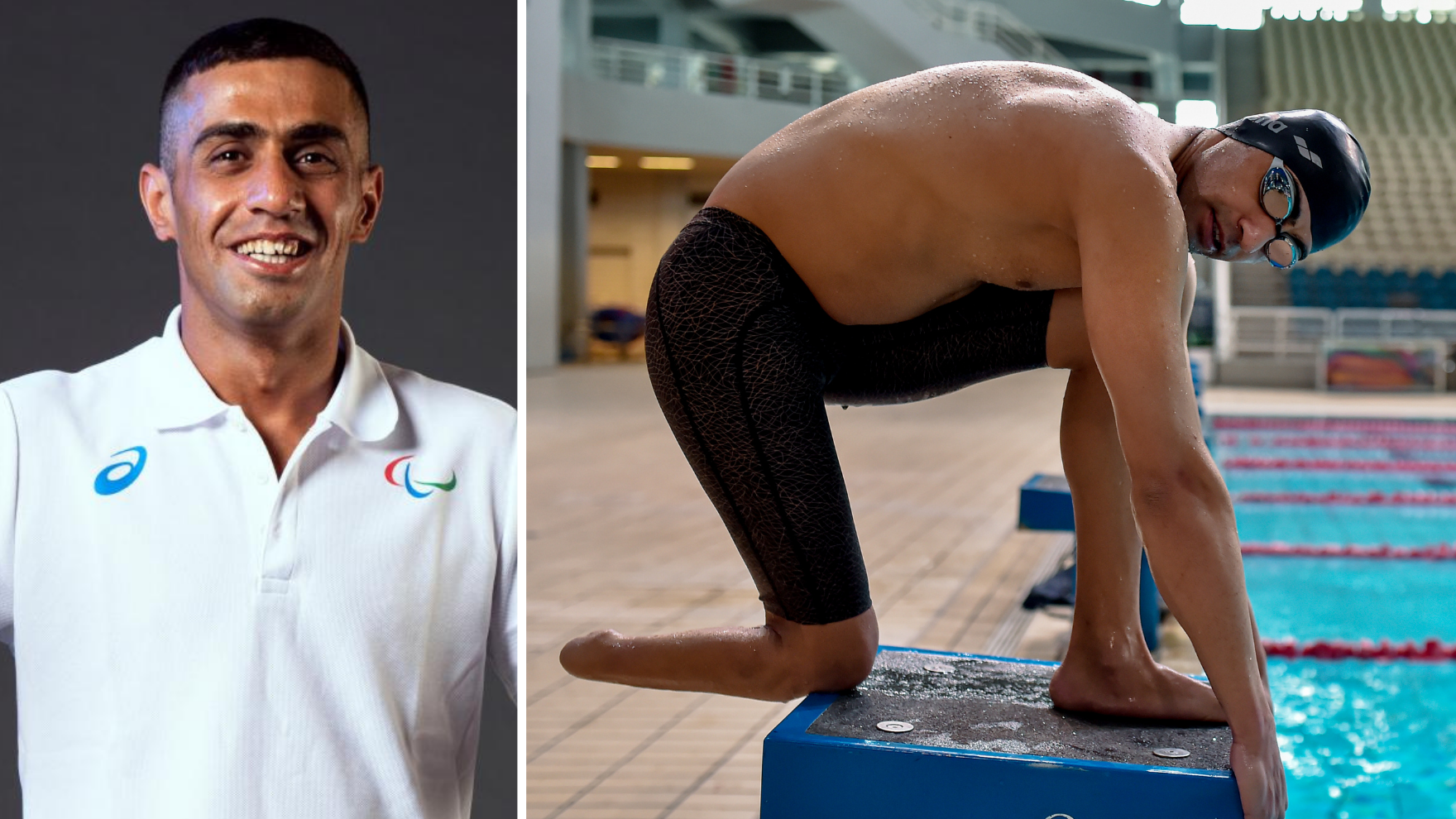As a teenager in Syria, Ibrahim Al Hussein dreamt of becoming an Olympic swimmer before he lost a leg in the war. Now a refugee in Greece, he is set to participate in the Tokyo Paralympics in late August.
“I was a bit stressed a month ago but I am alright now. I’m ready to compete,” the Para swimmer, who competed in the Rio Paralympics in 2016 as part of the first ever Refugee Team told The Greek Herald in fluent Greek, from his home in Sepolia, Athens, where he lives.
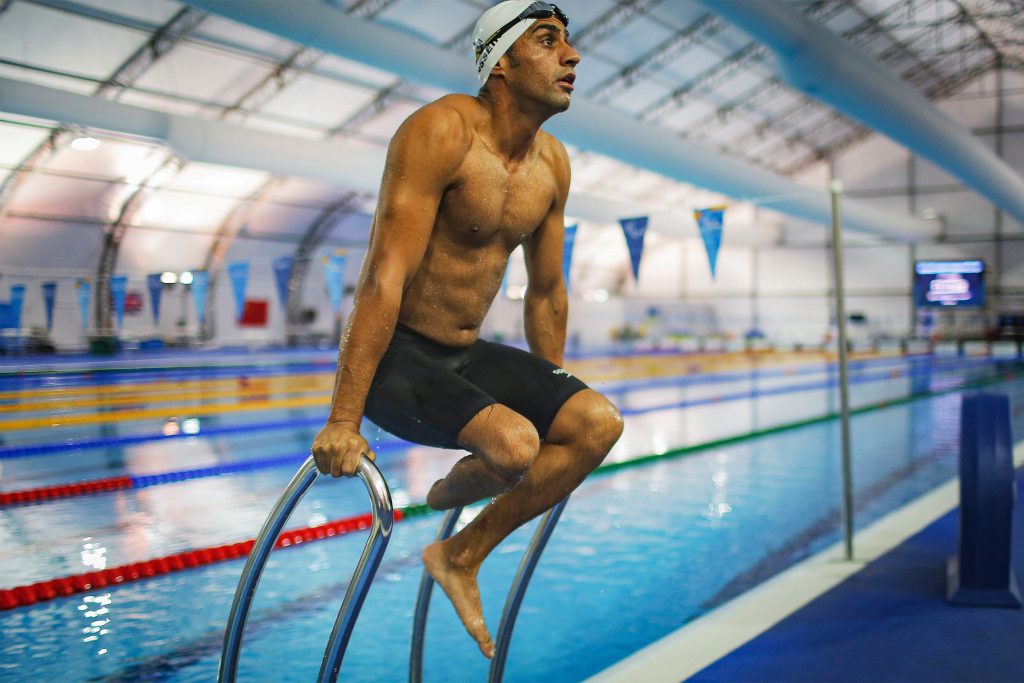
From the Euphrates to Tokyo
The son of a swimming coach, Al Hussein, 33, began swimming aged five in the Euphrates River.
In 2012 as the war in Syria raged in and around his home city of Deir ez-Zor, Al Hussein was visited by a friend. When his friend left to go home, he was shot at and Al Hussein ran over to help only to find himself injured.
“I knew the risk that I might not be coming back home alive,” he said. “But I told myself, ‘I have to go, because if something happens to him and I have done nothing, I cannot live anyway with this thought in my mind’.”
“I was about to carry my friend to a safe place or hospital. But unfortunately, as soon as I reached him, there was an explosion beside me,” he said.
“I lost my right leg, and I also needed metal plates in my left leg, my nose and my left eye socket.”
Al Hussein received emergency medical treatment at a makeshift clinic before being taken to Turkey. His right leg was amputated from the middle of the calf. A year later, in February 2014 he made the dangerous journey to Greece in a wheelchair.
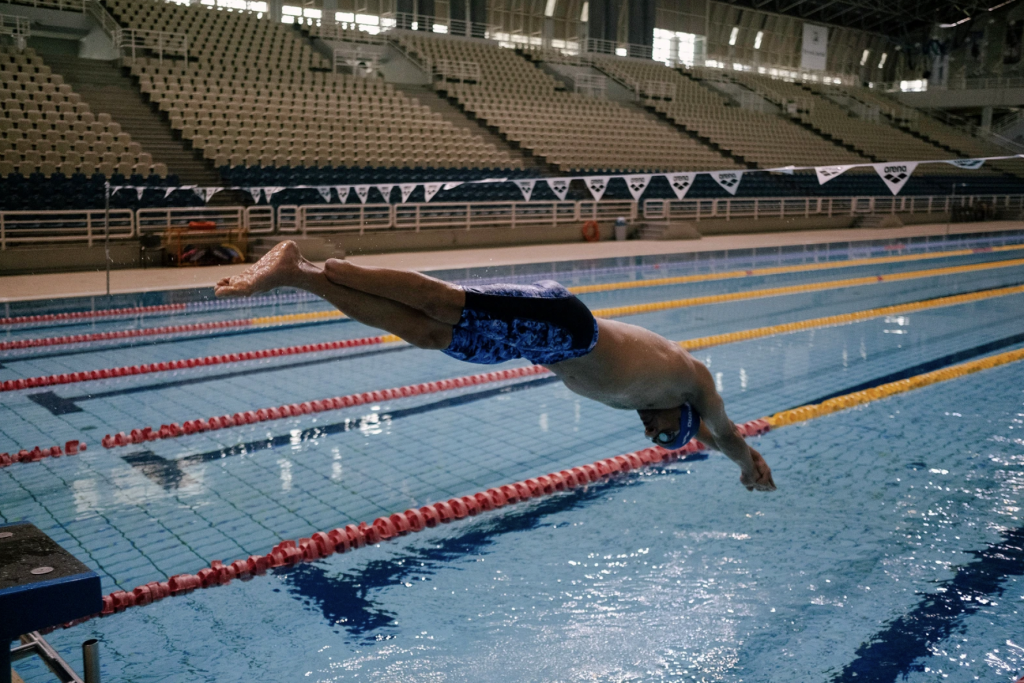
Al Hussein: “I’m happy in Greece”
“It was very difficult in the beginning in Greece because I didn’t speak the language and I had nobody. For the first 18 days I was living in the streets as there were no camps back then but eventually, I found a doctor in Athens who helped me,” he said.
Dr Angelos Chronopoulos of the Rehabline company used his specialist skills in prosthetic orthotics to produce a new plastic right leg for Al-Hussein.
“The leg would normally cost 12,000 euros but he made it, did not charge me for it and any maintenance is free,” Al Hussein said.
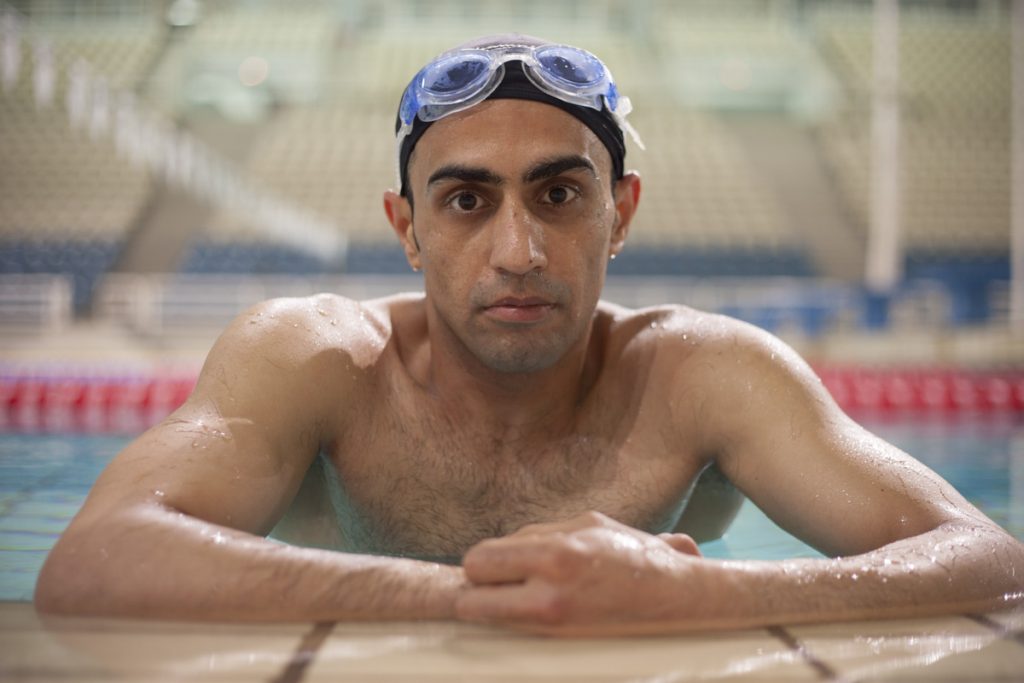
“After that I said this is the place where I would like to live. I’m happy in Greece. I even learned to speak Greek because I love the country and the people so much.
“I didn’t come to Greece for the papers or the money. We had money in Syria but we lost everything. I came to find a new homeland.”
Hussein says he has rejected offers to compete with Syria as well as Germany and the US.
A passion to help other refugee athletes
In 2016, Al Hussein was the flag bearer of the first Independent Paralympic Team at the Rio Olympics.
One year later, the swimmer made his World Championships debut in Mexico City followed by a second World Championships appearance in London in September 2019.
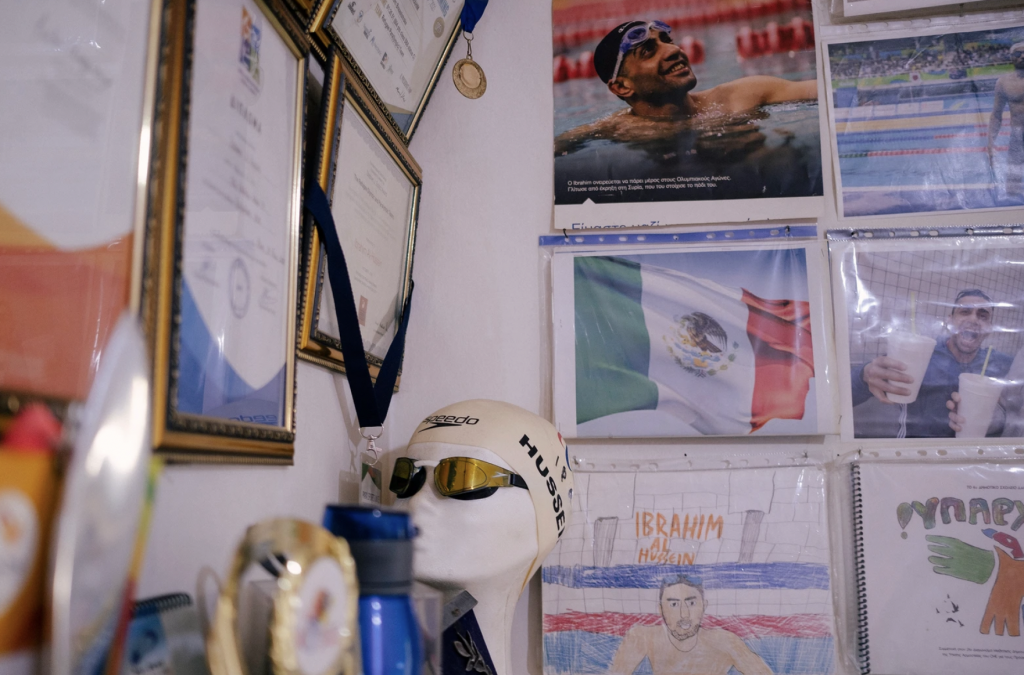
Now, his focus is on Japan and after the Games Al Hussein intends to re-channel his efforts into helping other refugee athletes onto the highest stage in sport – he currently supports a refugee wheelchair basketball team in Greece.
“I want to show other refugees that they can do what they set their minds to. No one should go through the hardships I went through the first two years.”
Al Hussein is, no stranger to helping others.
“Athletes or not this is what you need to remember: the strength comes from inside. From your mind and heart, not from the body. The body just helps,” he said.

